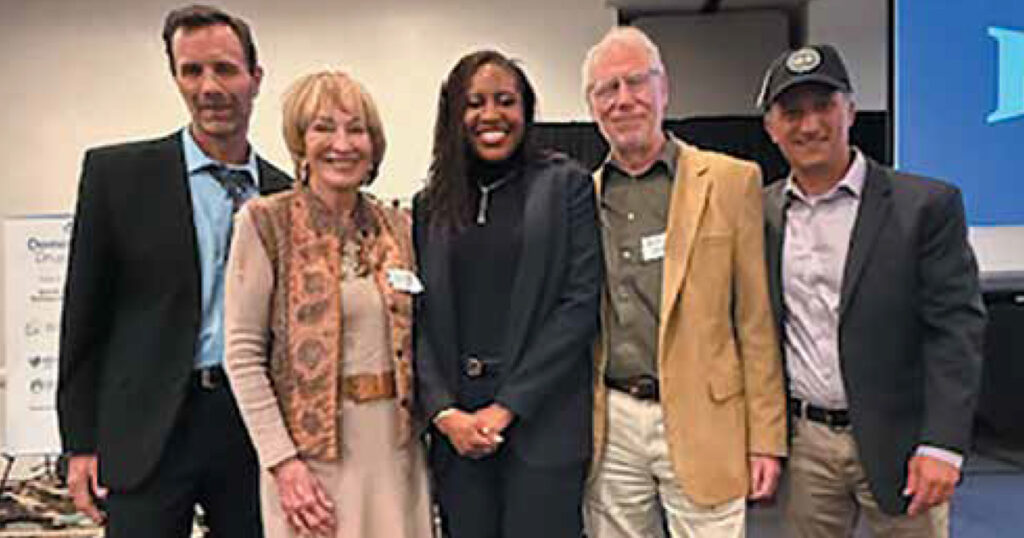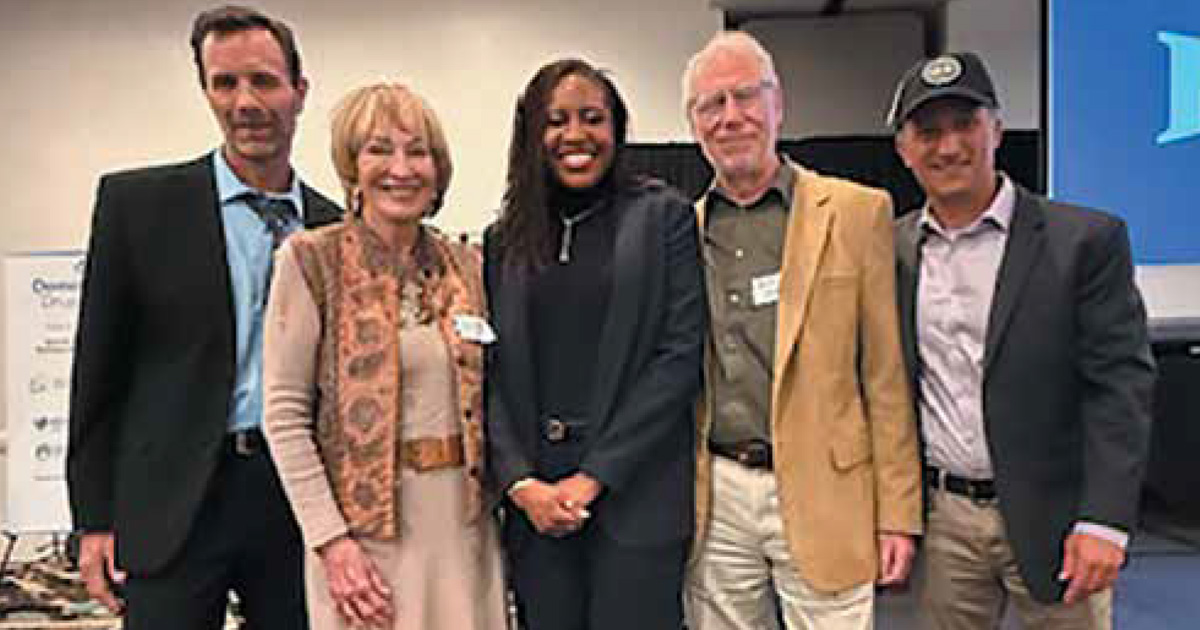
(Left to right) Keith Gosselin, MBA, Sylvia Taylor-Stein, Sevet Johnon, PhD, Dr. Power & Tony Chicotel.
The Dementia Beyond Drugs & Disease Symposium, focused on transforming dementia care, took place on March 6, 2025, at the Staybridge Suites in Oxnard.
“With dementia cases projected to rise from 57 million in 2021 to 153 million by 2050, this is no longer an issue we can afford to address passively,” said Keith Gosselin, MBA, executive director of Long-Term Care Services of Ventura County. “We thank you for being part of this critical conversation and for your commitment to transforming dementia care for the better.”
Sevet Johnson, Ph.D., Ventura County executive officer, commended Long-Term Care Services of Ventura County, saying, “The compassion of the ombudsman over the past 25 years has enhanced the quality of life for so many.” For more than 40 years, Long-Term Care Services of Ventura County, Inc. has managed the Ventura County Ombudsman Program, advocating for elderly residents in long-term care facilities.
“The effort to improve the lives of those with dementia and provide them with a higher quality of life through our services is essential,” said Sylvia Taylor-Stein, former executive director of Long-Term Care Services.
Tony Chicotel, senior attorney at California Advocates for Nursing Home Reform, offered insights into rights-based care and practical strategies for improving long-term care facilities. Since 2006, he has worked to promote residents’ rights through litigation, legislation, and regulatory advocacy.
“By staying in assisted living instead of being transferred to memory care, residents can remain where their friends are and in a familiar environment,” Chicotel said. “Sedation is often used for staff convenience, but it is a chemical restraint, which is not right for the resident. Unfortunately, in understaffed facilities, it happens as a form of discipline.”
G. Allen Power, M.D., FACP, a board-certified internist, geriatrician, and clinical associate professor of medicine at the University of Rochester in New York, has pioneered non pharmacological approaches to dementia care. An international speaker and thought leader, he has dedicated his career to transforming dementia care globally.
“We can all lower our risk of dementia through exercise, a healthy diet, social engagement, and using hearing aids and glasses if needed,” Power said.
Regarding those living with dementia, he added, “It needs to be viewed as a chronic disability that accommodations can help with. We can continue to change our attitudes by recognizing that individuals with dementia can still learn new things, such as creating artwork, cooking meals, or singing songs.”
Power also emphasized the importance of staff consistency in nursing homes. “Nursing homes need to have consistent staff, ideally with 12-hour shifts,” he said. “Always ask permission before entering a resident’s room, sit at their level instead of standing over them, and engage them by asking open-ended questions about their lives.”
He concluded with an analogy: “Think of Wheel of Fortune. In the final round, the category is ‘A Thing.’ The answer is ‘Statue of Liberty.’ We all arrive at answers differently.”
Power then performed a song he wrote on guitar, highlighting the importance of independence with the lyrics: “Keep independence, or leave it behind. I’ll go on to glory and leave my burdens behind.”
